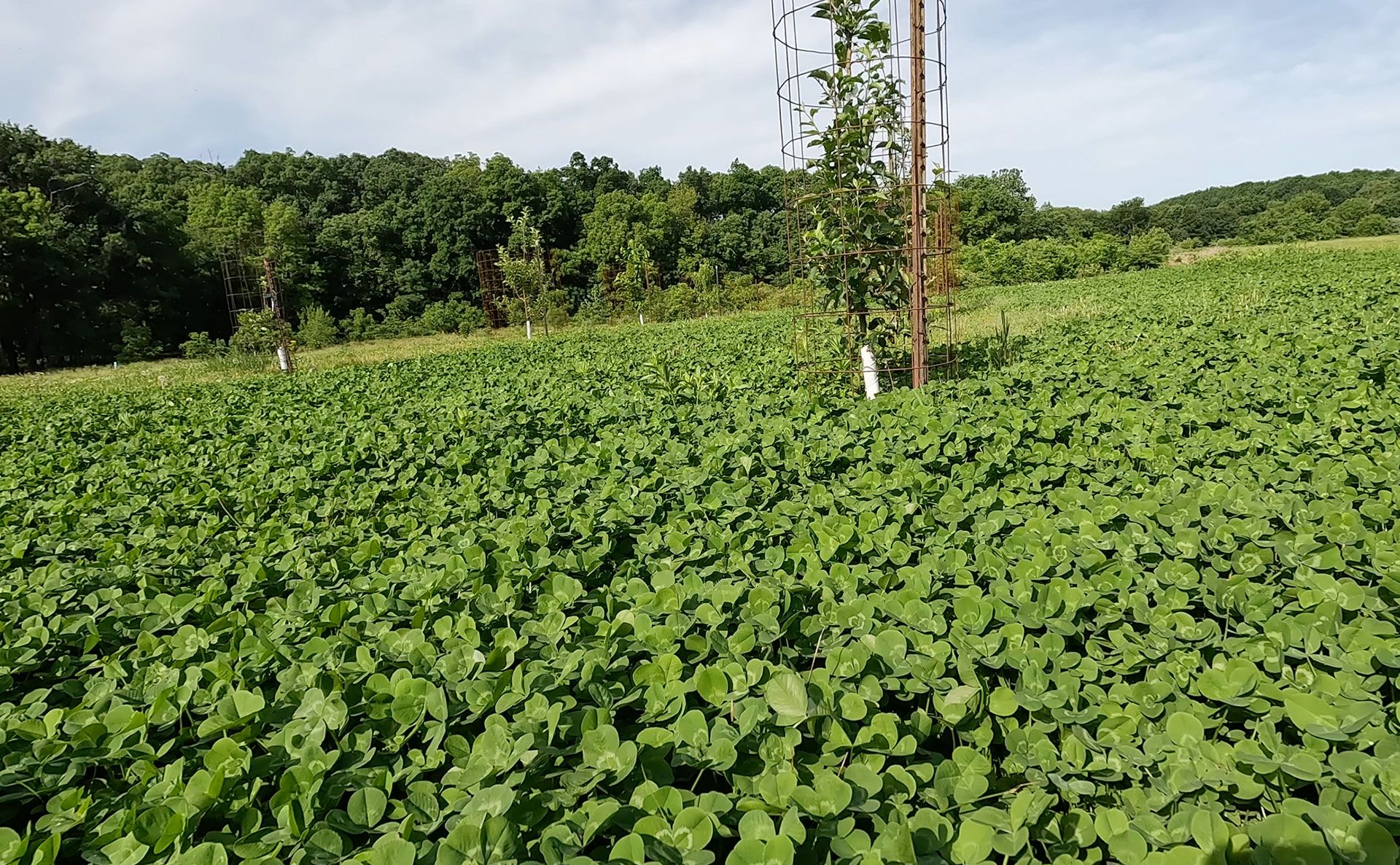More Pollinators and More Nitrogen: Planting Clover Cover Crops in Your Orchard

Planting a Clover Cover Crop: In this video Andrew from the Howard Homestead talks about the benefits of a clover cover crop, and how to plant it.
Let's explore the reasons why orchardists should consider planting a clover cover crop.
1. Biodiversity and Pollinator Support:
A clover cover crop fosters biodiversity within the orchard ecosystem. The flowers of clover attract a wide array of beneficial insects, including bees, butterflies, and other pollinators. By providing an additional food source, the clover cover crop supports pollinator populations, ensuring effective pollination of orchard trees and promoting higher fruit set and yield. A thriving population of pollinators also contributes to the ecological balance of the orchard and the surrounding landscape.
2. Nitrogen Fixation and Soil Enrichment:
Clover, particularly legume varieties like red clover or white clover, has a remarkable ability to fix nitrogen from the atmosphere and convert it into a usable form for plants. This nitrogen-fixing capacity reduces the reliance on synthetic fertilizers, leading to cost savings and minimizing environmental pollution. The enriched soil nourished by the clover cover crop enhances the health and productivity of orchard trees, promoting robust growth and fruit development.
Did the Cover Crop Work? After several months of growing, has the cover crop helped the orchard?
3. Weed Suppression and Erosion Control:
Clover's dense growth habit forms a natural weed-suppressing blanket, outcompeting unwanted weed species. Its vigorous growth and sprawling canopy shade the soil, making it challenging for weeds to thrive. This natural weed control reduces the need for herbicides, contributing to a more sustainable orchard environment. Additionally, the extensive root system of clover helps bind the soil particles together, reducing erosion and protecting valuable topsoil from being washed away during rainfall events.
Cover crop questions: In this video, Andrew goes through the common questions people have about clover in the orchard.
4. Moisture Retention and Water Conservation:
The dense canopy of a clover cover crop helps conserve soil moisture by reducing evaporation and protecting the soil surface from direct sunlight. By acting as a living mulch, clover retains moisture in the root zone, reducing water stress for orchard trees during dry periods. Improved water retention contributes to the overall water efficiency of the orchard, supporting sustainable water management practices and minimizing irrigation needs.
5. Aesthetics and Orchard Floor Management:
Beyond its functional benefits, a clover cover crop adds a visual appeal to the orchard landscape. The vibrant green hues of the clover create a pleasing contrast against the fruit-bearing trees, enhancing the overall aesthetics of the orchard. Additionally, the dense cover provided by clover reduces soil compaction and erosion caused by foot traffic and machinery, making it easier to navigate and work within the orchard.
Clover vs. Grass: In this video, Andrew shows the difference between grass and clover in the orchard.
The inclusion of a clover cover crop within orchards presents a multitude of advantages, ranging from nitrogen fixation and soil enrichment to weed suppression, erosion control, pollinator support, and water conservation. By harnessing the power of clover's unique attributes, orchardists can cultivate sustainable ecosystems that promote soil health, increase productivity, and contribute to the preservation of the environment. Embrace the allure of a clover cover crop and witness the transformation of your orchard into a thriving and sustainable haven of natural beauty and abundance.



